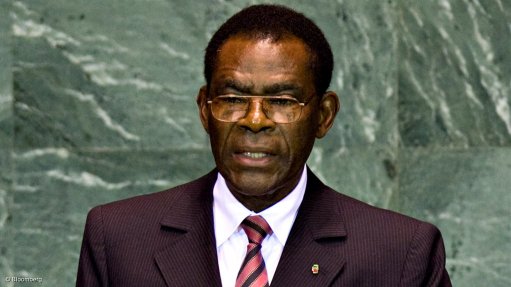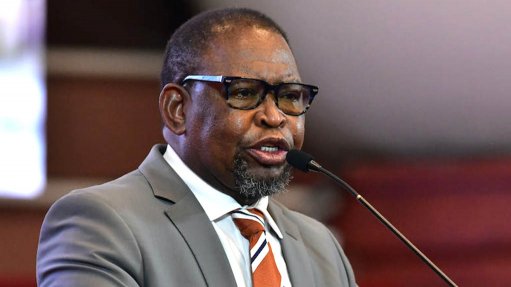‘Doublespeak’ robs words of their true meanings
Back in 1984, I picked up a book, published in 1949, because its title really appealed to me at the time. The book was authored by George Orwell – of Animal Farm fame – but I desperately wanted to read it not for its author so much as its title: Nineteen Eighty-Four.
The book introduced the fictional character and symbol ‘Big Brother’, later immortalised by possibly the most horrid of television programmes that bears the name. But arguably the book’s most important contribution to the English language is its conceptualisation of the term ‘doublespeak’ – a word not actually used in the book.
Doublespeak is closely aligned to two of the central concepts of the book, ‘doublethink’ and ‘newspeak’. According to Nineteen Eighty-Four, a person using doublethink could hold two opposing ideas in his/her mind at the same time, while fully believing in both ideas. Newspeak, meanwhile, is the official language used to express the ideas of doublethink.
According to definition, doublespeak is language that is deliberately employed to disguise, distort or reverse the meaning of words. It may take the form of euphemisms such as ‘downsizing’ for layoffs, when its aim is to make the truth sound more palatable. It may also refer to intentional ambiguity in language or to actual inversions of meaning. In essence, all forms serve to disguise the nature of the truth, and it goes without saying that doublespeak tends to be most closely associated with political language.
In his book Beyond Hypocrisy, political economist and media analyst Edward S Herman elaborates on the principal characteristics of doublespeak thus: “What is really important in the world of doublespeak is the ability to lie, whether knowingly or unconsciously, and to get away with it; and the ability to use lies and choose and shape facts selectively, blocking out those that don’t fit an agenda or programme.”
William Lutz, in his bestselling book simply titled Doublespeak, notes that it is not accidental or a “slip of the tongue”.
“Instead, it is a deliberate, calculated misuse of language, with the following definitive attributes: (i) misleads; (ii) distorts reality; (iii) pretends to communicate; (iv) makes the bad seem good; (v) avoids or shifts responsibility; (vi) makes the negative appear positive; (vii) creates a false verbal map of the world; (viii) limits, conceals, corrupts, and prevents thought; (ix) makes the unpleasant appear attractive or tolerable; and (x) creates incongruity between reality and what is said or not said.” In essence, doublespeak corrupts thought.
Language is the basis of all human communication – we use it to think, to make decisions, to express our thoughts and feelings on issues, and act as a result of the processing information. So, the language we hear and use in our everyday lives influences us, helping to shape our opinions to a greater degree than we probably realise. Thus, if the language we hear and read is corrupt and misleading, it will corrupt and mislead our thought processes.
South Africa has its own quota of doublespeak, which is even enshrined in the Constitution – Chapter 2 ‘Bill of Rights’ in Section 9 ‘Equality’ to be exact, which reads as follows: “(1) Everyone is equal before the law and has the right to equal protection and benefit of the law. (2) Equality includes the full and equal enjoyment of all rights and freedoms. To promote the achievement of equality, legislative and other measures designed to protect or advance persons, or categories of persons, disadvantaged by unfair discrimination may be taken. (3) The State may not unfairly discriminate directly or indirectly against anyone on one or more grounds, including race, gender, sex, pregnancy, marital status, ethnic or social origin, colour, sexual orientation, age, disability, religion, conscience, belief, culture, language and birth. (4) No person may unfairly discriminate directly or indirectly against anyone on one or more grounds in terms of subsection (3). National legislation must be enacted to prevent or prohibit unfair discrimination. (5) Discrimination on one or more of the grounds listed in subsection (3) is unfair unless it is established that the discrimination is fair.”
So constitutionally discrimination can be “unfair unless it is established that the discrimination is fair”. According to the Department of Labour, “It is not unfair to discriminate when you apply affirmative action. It is not unfair discrimination to (i) apply affirmative action; or (ii) exclude or prefer people because of certain requirements of a job (for example, to exclude blind workers from driving a bus), based on legislation in Section 6, of the Employment Equity Act. There are four grounds on which discrimination is generally allowed: (i) discrimination based on affirmative action; (ii) discrimination based on the inherent requirement of a particular job; (iii) compulsory discrimination by law; and (iv) discrimination based on productivity.”
There are also some classic examples of doublespeak in business and commerce: staff are our greatest assets (truth: they are the easiest cost to eliminate); we need a new paradigm (truth: we actually do not know what to do); temporary cash flow (truth: our cost management is poor); nonperforming assets or nonperforming credits which are rolled over or rescheduled (truth: bad loans or bad debts); and meaningful downturn in aggregate output (truth: recession).
The final word is Albert Einstein’s “Any fool can make things bigger, more complex, and more violent. It takes a touch of genius – and a lot of courage – to move in the opposite direction.”
Sars’ 2014/15 Annual Report
At the Parliamentary Finance Standing Committee’s meeting of October 13, the South African Revenue Service (Sars) released its 2014/15 annual report.
If you have never before made the effort to read it, I would urge you to invest the time to do so. You might well be surprised at what you could learn. As an added benefit, it might well empower you to also question.
For instance, in the report under the heading ‘Sars performance highlights at a glance – Revenue collected’ it states ‘Customs Revenue R178-billion – R2.2-billion above target’. However, the target for February 2014 was, in fact, R202-billion, which means R24-billion below target.
Comments
Press Office
Announcements
What's On
Subscribe to improve your user experience...
Option 1 (equivalent of R125 a month):
Receive a weekly copy of Creamer Media's Engineering News & Mining Weekly magazine
(print copy for those in South Africa and e-magazine for those outside of South Africa)
Receive daily email newsletters
Access to full search results
Access archive of magazine back copies
Access to Projects in Progress
Access to ONE Research Report of your choice in PDF format
Option 2 (equivalent of R375 a month):
All benefits from Option 1
PLUS
Access to Creamer Media's Research Channel Africa for ALL Research Reports, in PDF format, on various industrial and mining sectors
including Electricity; Water; Energy Transition; Hydrogen; Roads, Rail and Ports; Coal; Gold; Platinum; Battery Metals; etc.
Already a subscriber?
Forgotten your password?
Receive weekly copy of Creamer Media's Engineering News & Mining Weekly magazine (print copy for those in South Africa and e-magazine for those outside of South Africa)
➕
Recieve daily email newsletters
➕
Access to full search results
➕
Access archive of magazine back copies
➕
Access to Projects in Progress
➕
Access to ONE Research Report of your choice in PDF format
RESEARCH CHANNEL AFRICA
R4500 (equivalent of R375 a month)
SUBSCRIBEAll benefits from Option 1
➕
Access to Creamer Media's Research Channel Africa for ALL Research Reports on various industrial and mining sectors, in PDF format, including on:
Electricity
➕
Water
➕
Energy Transition
➕
Hydrogen
➕
Roads, Rail and Ports
➕
Coal
➕
Gold
➕
Platinum
➕
Battery Metals
➕
etc.
Receive all benefits from Option 1 or Option 2 delivered to numerous people at your company
➕
Multiple User names and Passwords for simultaneous log-ins
➕
Intranet integration access to all in your organisation


















